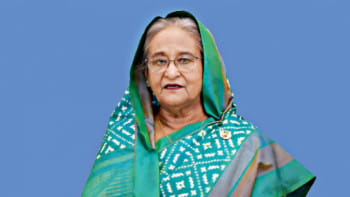Footsteps Bangladesh launches portable filter that converts flood water into drinking water

Footsteps Bangladesh, a social organisation, intends to address various challenges such as access to safe and clean drinkable water, sanitation, waste management and disaster response to create vital development tools for underprivileged communities. The organisation conducted a range of activities to support underprivileged communities during the pandemic.
During the flood crisis, access to safe drinking water is a critical issue across rural and flood prone communities, with tubewells and other drinking water sources being submerged. Government and various NGOs deploy volunteers on ground to carry emergency water jars to affected communities, but such response is limited due to the mass need during such a crisis. In an attempt to alleviate this crisis, Footsteps Bangladesh has designed a Dreamwater Portable Filter (PF) under its Disaster Resilience Programme. This project would empower local communities to solve their own food challenge and turn it into a useful resource.
"I've been thinking about such an invention since 2018, but research and development related work took place from late 2020 when we had enough resources to begin working on this device," shared Shah Rafayat Chowdhury, Founder, Footsteps Bangladesh. After several trial and errors, along with collecting feedback from communities and fundraising, the team has finally launched the pilot project.
This lightweight filter can convert flood water into drinking water by removing harmful sediments and elements, creating a reliable source of drinking water during a time of crisis. It consists of a five stage ultrafiltration process, which is unique in removing sediments along with bacteria and viruses. It also removes odour, and improves taste of the water.
The first batch of filters have been distributed in Kurigram, where nine women are undergoing training to be disaster respondents in providing safe water during the flood crisis. "We have conducted a workshop on how to use the system, change its components, and troubleshoot if any problems occur. We have also trained a local mechanic in Kurigram to address the additional technical needs of these women," Shah added. They are also generating awareness on how they can sell the filtered water in their local communities, such as setting price and logistics of transaction.
"Presently, we plan to work on the pilot project, and find the challenges in reality so that we can work on necessary solutions. Afterwards, we will be reaching out to other NGOs and governmental agencies to purchase and deploy these filters for women in flood affected regions," Shah further explained.
As a part of their Disaster Resilience Programme, Footsteps Bangladesh is also working on climate resilient housing, resilient farmers programme, and livelihood enhancement. These initiatives would ensure that people in flood-prone communities can tackle local disasters on their own and create solutions that benefit their communities in the long run.
The author is a medical student and a freelance journalist who likes reading, scribbling, and blogging. Email: mislammonamee@gmail.com.


 For all latest news, follow The Daily Star's Google News channel.
For all latest news, follow The Daily Star's Google News channel. 



Comments